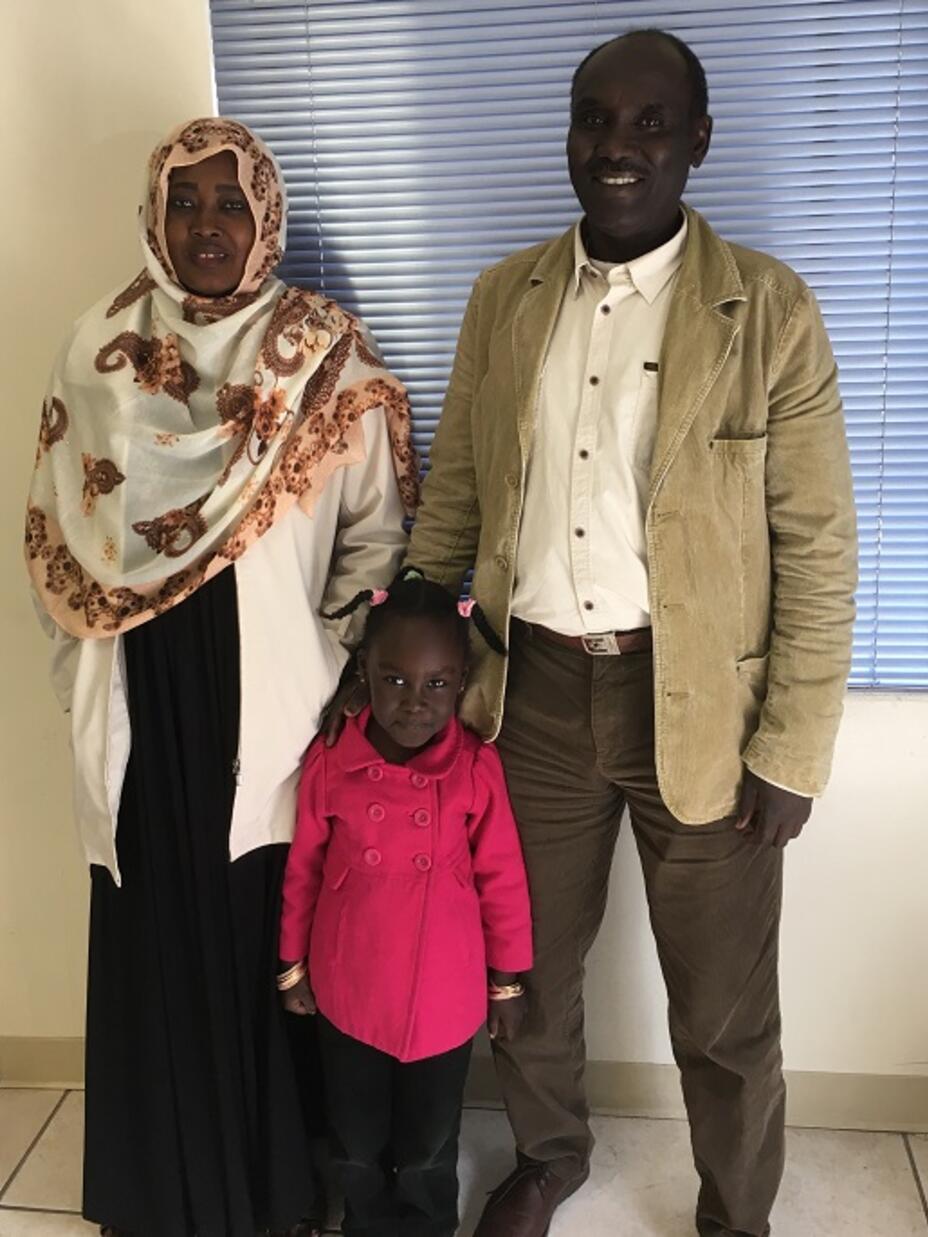
When I sit down to meet Adam for the first time, all I know about him is he arrived in America a month ago, and he is from Darfur, in West Sudan. Mustafa, one of the interpreters at the IRC in Baltimore, is with me. He has connected me with Adam, and set up the interview.
There are a few initial moments of confusion, as Mustafa and Adam communicate back and forth. I had assumed the entire interview would be conducted with using Mustafa as interpreter, but a few minutes in and Adam turned to me and began speaking fluent English.
“Your English is very good, where did you learn it?” I asked, surprised and unaware that English was becoming more common in Darfur and Sudan.
“It’s been a while since I’ve used it—I haven’t been able to work—so I’ve forgotten a lot of it but I am a graduate of English Arts in Sudan, and have a diploma in English teaching. I worked with Save the Children for eight years, had to write reports. I taught English to kids for eight years in a high school, and have taught hundreds of other teachers over the years.”
Adam and his family were at the heart of the war and genocide in 2003, when Arab militia forces, working with the Sudanese government, attacked the people of Darfur in an effort to combat rebel forces that formed due to increased marginalization of non-Arabs and the Fur people.
It has been a brutal war for the people of Darfur, and by 2010 there were an estimated 400,000 casualties, with hundreds of thousands of others fleeing to refugee camps in Chad. Adam was not among those numbers, but many of his friends and even some of his family were.
After the onset of the war, Adam and his family spent many years bouncing from city to city, village to village, all throughout the Darfur region, spending most of their time in and out of the town of Kutum, with a population of just 45,000. For a long time, the strong media presence in the town kept the militia away and provided them with relative safety.
Any word of nearby militia or rebels, and Adam and his family would pack up in the middle of the night and move somewhere new.
“The militia attacked with three steps. The first was to burn the villages, crops, and kill livestock. This ruins business. The second was to kill all of the men with money. The last was to kill all of the educated people. Darfurian villages were destroyed, and the livestock let out to run everywhere”
Humanitarian forces came and a camp was founded, where Adam joined Saved the Children. But the camp was eventually attacked, and there was “burning, killing, and rape,” Adam said. Everything was taken from them: laptops, desktop computers, kitchenware. Offices were looted.
One day he received an anonymous call on his cell phone. “In two days we will kill you,” the caller said before hanging up. So they picked up and left, back on the run.
Adam talked to his friends in Sudan, who were so generous and kind that they brought him and his family in, fed them, housed them, and clothed them. This was the most emotional part of the interview, and I could tell by his tears that he is most thankful to his friends in Sudan, who treated Adam and his family as if they were their own. Not tears of sadness, but tears of deep gratitude and love.
Due to his friends’ hospitality, Adam was able to survive the ongoing war and genocide in Darfur, and in November of 2013 he took his family to Jordan and had them registered as refugees.
The IRC in Baltimore resettled Adam and his family on March 3rd, 2016. He seems to like it here so far: “I feel very secure, and taken care of here in America. People here try to welcome you in a good way, and IRC staff is very good. I’d like to say that I really enjoyed cultural orientation. It’s a good program, and really important to becoming adjusted to living in America.”
While the worst was mostly over for Adam, he still had to hear of the atrocities going on back in Darfur. His uncle was tied to a horse and dragged away, losing an eye. Another uncle lost his hand trying to protect his neighbor’s daughters, ages 14 and 17, from being raped. Other friends and family lost their lives. This is still happening every day, although media coverage has died down.
Adam and his family were lucky to have such good friends and to have escaped unharmed. Thanks to the IRC in Baltimore they have just begun their lives in America, where they can raise their kids, a girl and boy, 4 and 14, and live without fear.